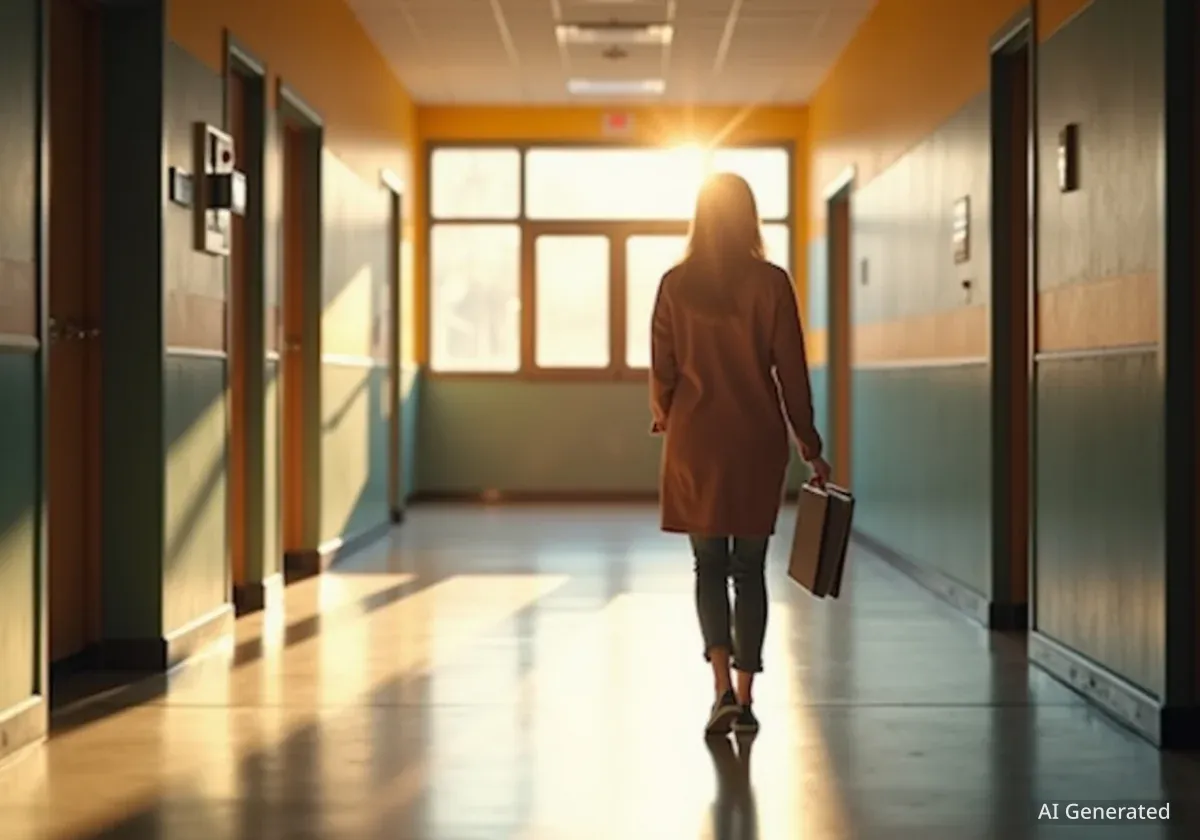A teacher in Lexington School District One has been placed on administrative leave while the district investigates allegations of unprofessional conduct linked to social media posts. This action is part of a growing trend in South Carolina where public school employees are facing disciplinary measures for their online activities, raising significant questions about First Amendment rights and employer oversight.
Key Takeaways
- A teacher in Lexington School District One is on administrative leave over social media posts.
- The incident reflects a statewide pattern of increased scrutiny of educators' online behavior.
- State officials have encouraged districts to monitor for "unprofessional educator conduct."
- Legal experts argue that some disciplinary actions may infringe on protected First Amendment speech.
- A separate lawsuit has been filed by a Spartanburg teacher terminated for similar reasons.
Lexington One Investigates Unprofessional Conduct Allegation
Lexington School District One confirmed it has taken action against one of its teachers following concerns about social media activity. The employee was placed on administrative leave, a standard procedure that removes them from the classroom pending the outcome of an internal review.
In a statement, a spokesperson for the district acknowledged the ongoing investigation into what it termed "allegations of unprofessional conduct." The district did not provide specific details about the content of the social media posts or the identity of the teacher involved, citing personnel privacy.
These investigations are becoming more common as school districts navigate the complex relationship between an employee's personal life and their professional responsibilities. The central issue is often where to draw the line between private expression and conduct that could negatively impact the school environment.
A Broader Pattern of Scrutiny in South Carolina
The situation in Lexington is not an isolated event. According to Catherine Glenn Foster, a constitutional attorney and political strategist, this incident is indicative of a wider trend affecting schools and businesses across the state. Employers are increasingly taking disciplinary action based on employees' social media use, particularly after posts involving high-profile individuals or sensitive topics.
State Officials Urge Social Media Monitoring
The increased focus on educator conduct online was recently amplified by two of South Carolina's top officials. Attorney General Alan Wilson and State Education Superintendent Ellen Weaver issued a joint memo urging education leaders to actively monitor social media for signs of "unprofessional educator conduct." This directive has put school districts on high alert, encouraging them to review and enforce policies related to employee behavior both on and off campus.
This top-down encouragement has created an environment where districts may feel compelled to act swiftly on complaints about a teacher's online presence. However, this proactive stance is also creating legal friction, with some actions being challenged as overreach.
First Amendment Rights at the Forefront
The core of the debate centers on the First Amendment rights of public employees. While government employers, including school districts, have a right to maintain order and professionalism, their ability to regulate an employee's speech is not unlimited, especially when the speech occurs outside of work on matters of public concern.
Catherine Glenn Foster has argued that many of the employees being reprimanded are being punished for posts that are legally protected under the First Amendment. She contends that policies broadly restricting personal social media use may not hold up under legal scrutiny.
Legal precedent generally protects public employees' speech on matters of public concern made in their capacity as private citizens. However, courts often use a balancing test, weighing the employee's free speech interests against the employer's interest in promoting the efficiency of the public services it performs.
Key Legal Questions for School Districts
As these cases arise, several critical legal questions are being considered:
- Did the employee speak as a private citizen or as part of their official duties?
- Was the subject of the speech a matter of public concern?
- Did the speech cause a significant disruption to the educational environment?
- Is the district's social media policy specific enough to be constitutional, or is it overly broad?
The answers to these questions often determine whether a disciplinary action is legally defensible. Vague or overly restrictive policies are particularly vulnerable to legal challenges.
Spartanburg Lawsuit Serves as a Test Case
The legal tensions are already playing out in court. A clear example is a recent lawsuit filed by a Columbia-based law firm on behalf of a Spartanburg teacher. The teacher was terminated from their position after making social media comments related to the assassination of political commentator Charlie Kirk.
The lawsuit claims the teacher's termination was a direct violation of their First Amendment rights, arguing the comments were made on a personal account, outside of work hours, and constituted political speech on a matter of public interest.
This case is being watched closely, as its outcome could set a significant precedent for how educator speech is handled in South Carolina and potentially nationwide. It directly challenges a school district's authority to fire an employee for off-duty online expression that the district deems inappropriate.
Foster concluded that individuals who face discipline for comments made outside the workplace, on their own time, and on personal devices may have strong grounds for a lawsuit. The results of these legal battles will likely shape school district policies for years to come, forcing a clearer definition of the boundaries between professional conduct and personal freedom.





